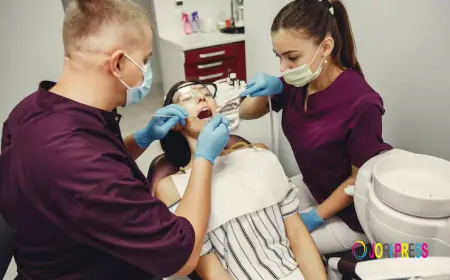Blood Test at Home for Rare Diseases: Is It Possible?

In recent years, advancements in medical technology have made healthcare more accessible than ever. One such innovation is the ability to perform a blood test at home, which has revolutionized how people monitor their health. But when it comes to rare diseases, can these Blood Test at home Dubai provide accurate and reliable results? This article explores the feasibility, benefits, and limitations of using blood test at home services for detecting rare conditions.
Understanding Rare Diseases and Their Diagnosis
Rare diseases, often referred to as orphan diseases, affect a small percentage of the population. Despite their low prevalence, these conditions can be severe, chronic, and sometimes life-threatening. Diagnosing them can be challenging due to their uncommon symptoms and the need for specialized testing.
Traditionally, diagnosing rare diseases required multiple hospital visits, extensive lab work, and consultations with specialists. However, with the rise of blood test at home services, many wonder if this convenient option can also help in identifying rare conditions early.
How Does a Blood Test at Home Work for Rare Diseases?
At-home blood tests involve collecting a small blood sample, usually through a finger prick or a venous blood draw performed by a mobile phlebotomist. The sample is then sent to a certified laboratory for analysis. Depending on the test, results may take a few days to a few weeks.
For rare diseases, specialized tests may look for genetic markers, specific proteins, or metabolic abnormalities. Some companies offer comprehensive panels that screen for multiple rare conditions, while others provide targeted tests for specific disorders.
Types of Rare Diseases Detectable Through At-Home Blood Tests
While not all rare diseases can be diagnosed through a blood test at home, several conditions may be identified using these methods, including:
-
Genetic Disorders – Some at-home tests analyze DNA to detect mutations linked to rare genetic conditions.
-
Metabolic Disorders – Abnormalities in enzymes or metabolic pathways can sometimes be identified through blood analysis.
-
Autoimmune Diseases – Certain rare autoimmune conditions may show specific antibodies in blood tests.
-
Hematologic Disorders – Blood-related rare diseases, such as certain anemias or clotting disorders, may be detectable.
Benefits of At-Home Blood Testing for Rare Diseases
The convenience of a blood test at home offers several advantages, especially for individuals with rare diseases who may face difficulties accessing specialized healthcare.
Early Detection and Monitoring
Early diagnosis is crucial for managing rare diseases effectively. At-home testing allows individuals to screen for potential conditions without delays, leading to earlier intervention.
Reduced Need for Hospital Visits
Many rare disease patients require frequent testing, which can be burdensome. At-home blood tests minimize the need for constant hospital trips, making healthcare more manageable.
Privacy and Comfort
For those with mobility issues or anxiety about medical settings, collecting a blood sample at home provides a more comfortable and private experience.
Limitations and Challenges
While blood test at home services offer many benefits, they are not without limitations when it comes to rare diseases.
Accuracy and Reliability
Some rare diseases require highly specialized tests that may not be available through at-home kits. False negatives or positives can occur, necessitating confirmatory testing in a clinical setting.
Limited Test Availability
Not all rare diseases have biomarkers that can be detected through blood tests. Some conditions may require imaging, biopsies, or other diagnostic methods.
Interpretation of Results
Understanding test results for rare diseases can be complex. Without proper medical guidance, individuals may misinterpret findings, leading to unnecessary stress or delayed treatment.
Who Should Consider an At-Home Blood Test for Rare Diseases?
At-home testing may be suitable for:
-
Individuals with a family history of rare genetic disorders.
-
Those experiencing unexplained symptoms that align with rare conditions.
-
Patients already diagnosed with a rare disease who need regular monitoring.
However, consulting a healthcare provider before and after testing is essential to ensure proper diagnosis and follow-up care.

The Future of At-Home Blood Testing for Rare Diseases
As technology advances, the scope of blood test at home services is likely to expand. Innovations in genomics, biomarker discovery, and artificial intelligence may improve the accuracy and range of detectable rare diseases.
Integration with Telemedicine
Combining at-home testing with telemedicine allows patients to discuss results with specialists remotely, bridging gaps in access to rare disease experts.
Personalized Medicine
Future developments may enable more personalized at-home tests tailored to an individual’s genetic and medical history, enhancing early detection of rare conditions.
Final Thoughts
While a Blood Test at home in Dubai can be a valuable tool for detecting certain rare diseases, it is not a one-size-fits-all solution. These tests offer convenience, early detection potential, and reduced healthcare burdens but must be used alongside professional medical advice. As technology progresses, at-home testing may play an even bigger role in rare disease diagnosis, making healthcare more accessible for those who need it most.
If you suspect a rare disease, an at-home blood test could be a helpful first step—but always follow up with a healthcare provider for comprehensive evaluation and care.
What's Your Reaction?
 Like
0
Like
0
 Dislike
0
Dislike
0
 Love
0
Love
0
 Funny
0
Funny
0
 Angry
0
Angry
0
 Sad
0
Sad
0
 Wow
0
Wow
0




















































